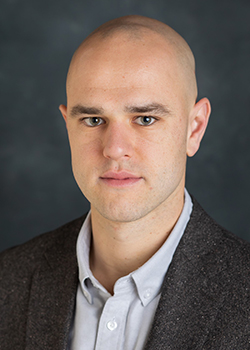 The Department of Nuclear Engineering welcomes Vladimir Sobes to the faculty as an assistant professor. Sobes joins UT after six years at Oak Ridge National Laboratory. Sobes received his bachelor’s in Nuclear Science and Engineering from MIT in 2011 and his doctorate from MIT in Nuclear Science and Engineering in 2013.
The Department of Nuclear Engineering welcomes Vladimir Sobes to the faculty as an assistant professor. Sobes joins UT after six years at Oak Ridge National Laboratory. Sobes received his bachelor’s in Nuclear Science and Engineering from MIT in 2011 and his doctorate from MIT in Nuclear Science and Engineering in 2013.
“Dr. Sobes’ contributions as a researcher and collaborator will strengthen UT’s impact as a top nuclear engineering program,” said Department Head Wes Hines. “We are fortunate to welcome him from ORNL where he gained critical expertise to share with our students.”
Sobes’ research covers a broad spectrum of reactor physics. Research interests currently span four major areas from nuclear physics to reactor design. With a background in nuclear data, he continues to work on problems in the nuclear data pipeline with a particular interest in the application of Artificial Intelligence (AI)/ Machine Learning (ML) algorithms.
“In nuclear engineering design, people have been asking the questions for a long time: ‘How will it perform? Will it be safe? Will it produce power?’ and so on, and what I’m interested in doing is taking all of that expertise in analyzing nuclear reactors and changing the question that we’re asking,” said Sobes. “Instead of saying, ‘Here’s the design, how does it perform?’ I want to say, ‘Here’s the design, how can we make better?’ I think the time is ripe to use our analysis capabilities with artificial intelligence to answer that question.”
Further research projects look at how nuclear data enters radiation transport calculations and how reformulating the nuclear data representation can accelerate simulations of nuclear systems on modern heterogeneous computing architectures (HPC).
Research in Sensitivity/Uncertainty (S/U) analysis methods continues to be of interest. Application of S/U methods to nuclear systems design coupled with AI/ML methods is a new area of research. Last but not least, the entire research portfolio is applied to the design and future operation of the Fast Neutron Source experimental facility proposed to be built on the UT campus.